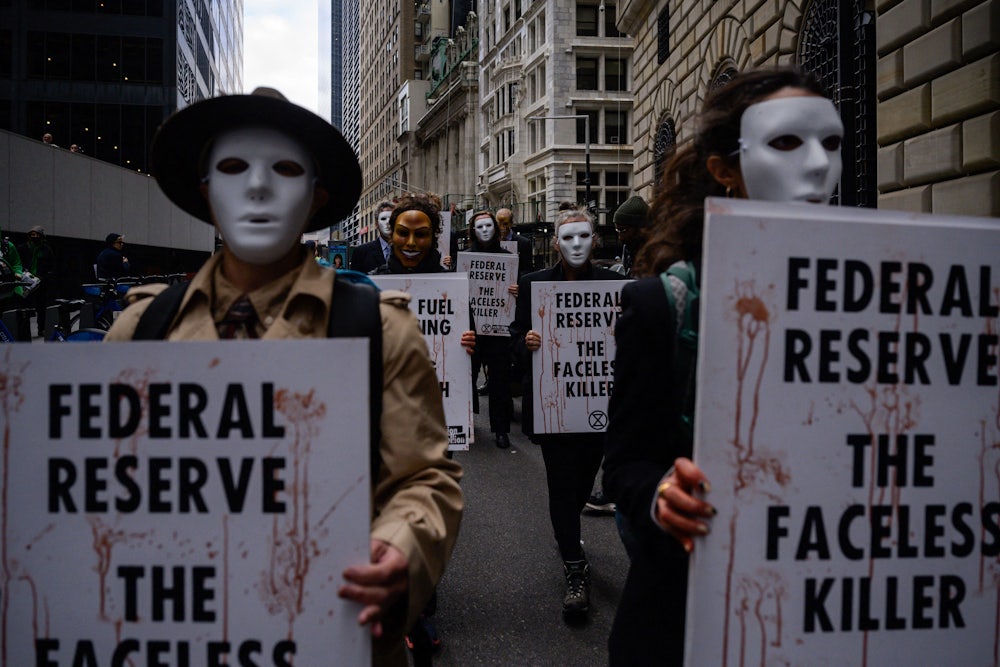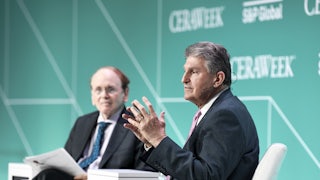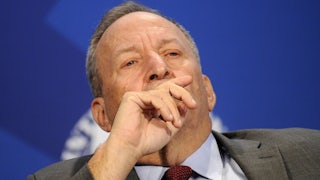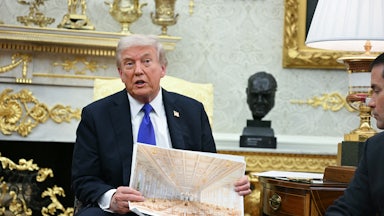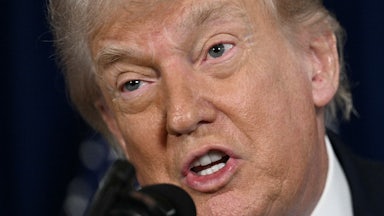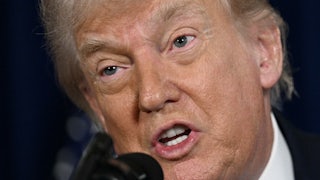Sarah Bloom Raskin’s nomination to become the Federal Reserve’s top banking cop may be dead, but the climate-related financial regulations that Republicans and Joe Manchin oppose aren’t going anywhere. The Washington Post reported earlier this week that the Securities and Exchange Commission plans to require all publicly traded companies to disclose their greenhouse gas emissions and the risks climate change poses to their business—rather than relying on voluntary disclosures, which has created a patchwork and incomplete picture.
Naturally, the same forces that aligned against Raskin’s nomination oppose new SEC rules on climate, too. While climate groups have made more ambitious demands for financial regulations—like raising capital requirements on banks that hold fossil fuel investments—even the prospect of banks’ having to disclose their carbon-intensive holdings has set off alarm bells for fossil fuel interests and their allies in the GOP. And it reveals what they really want: to insulate financial regulations from objective reality.
In an open letter to the SEC last June, the Chamber of Commerce—whose members include some of the country’s biggest polluters—pushed back against widening SEC disclosure requirements. It argued that any given company should have “adequate flexibility to adapt its disclosures to fit its industry, sector, and other company-specific facts and circumstances,” and pointed to the sustainability information many companies already provide voluntarily. Tom Quaadman, the Chamber’s executive vice president, wrote that “information that may be relevant to evaluating one company might not be informative when evaluating another company, and in fact could be misleading if required to be reported by companies for which that information is not material.” He added that new rules could “inundate investors with disclosures that obfuscate what is truly material.” The bottom line for the Chamber is that companies should get to disclose what they want, lest anyone hold them to it.
Right-wing and centrist commentators have criticized Raskin and her backers in progressive circles for plans to run “climate policy through economic regulators,” as Post columnist Meghan McArdle put it. “Climate advocates want to hand the job to central bankers not because that’s the best agency for the job,” she argued, “but because central banks are relatively insulated from democratic pressure.” Yet the Fed, while officially independent, is hardly immune from politics; just look at the right’s successful crusade against Raskin’s nomination. Political influence also hasn’t, as Republicans like Senator Pat Toomey have alleged, turned the Fed into a hotbed of progressivism. If anything, pressure from fossil fuel interests has forced the Fed to lag behind its peers when it comes to the climate.
Fed Chair Jerome Powell did, in 2020, opt for the United States to join the Network for Greening the Financial System, an alliance of central bankers. He also has said that conducting climate stress tests—analyzing the U.S. financial system’s ability to withstand risks posed by climate change—would be a “key tool” if he’s confirmed for a second term, following the example of central banks in the U.K. and China. But he’s largely downplayed the role the Fed can or should play in assessing and responding to climate destruction, arguing that it falls largely outside of the body’s dual mandate to ensure full employment and price stability. For an institution tasked with maintaining the stability of the financial system, a climate crisis that helped fuel $145 billion worth of weather-related losses in 2021 alone—and an energy transition that could render trillions of dollars of assets worthless—is a pretty big destabilizing force to confine to the margins of monetary policymaking.
Plenty of other central bankers around the world are reaching the same conclusion. The European Central Bank recently called out all of the 109 lenders under its jurisdiction for failing to meet its disclosure requirements, after it found that just 15 percent of eurozone banks published data on the emissions of companies they finance. “We stand ready to use the full array of supervisory tools at our disposal to ensure banks’ climate and environmental disclosures are up to our standards and ultimately that eligible banks are prepared for the new regulatory requirements,” said Frank Elderson, an executive board member of the bank.
Last year, the Bank of France announced that it would end its investments in coal and plans to start excluding oil and gas by 2024. South Korea, India, and New Zealand have all been looking to purchase more green bonds, low a bar as that is. Citing climate concerns, the Bank of Sweden announced in 2019 that it would sell off bonds issued by fossil fuel–boosting regional governments in Alberta, Canada, and the Australian states of Queensland and Western Australia.
As experts and climate campaigners have pointed out, existing central bank approaches on climate tend to be ridden with loopholes and flexibility that allow financial institutions to continue ignoring considerable risks. That the U.S. has barely started down the road taken by its peer institutions, though, should raise serious concerns—all the more so as politicians loyal to their fossil fuel donors exert increasing control over what’s supposed to be empirically grounded economic policymaking. The right’s campaign against climate-related financial regulations isn’t preventing the so-called “politicization” of financial governance but entrenching it on behalf of polluters.
The danger isn’t just that the U.S. could fall behind, but that its central bank is among the most powerful institutions on earth. Having the body responsible for stabilizing the world’s reserve currency fail to account for the realities of a warming world—and its changing energy landscape—doesn’t just put shareholders at risk. The consequences could ripple out to the internal plumbing of the global financial system, as the body that propped it up during the Covid-19 crisis hurtles into the next one with blinders on.
